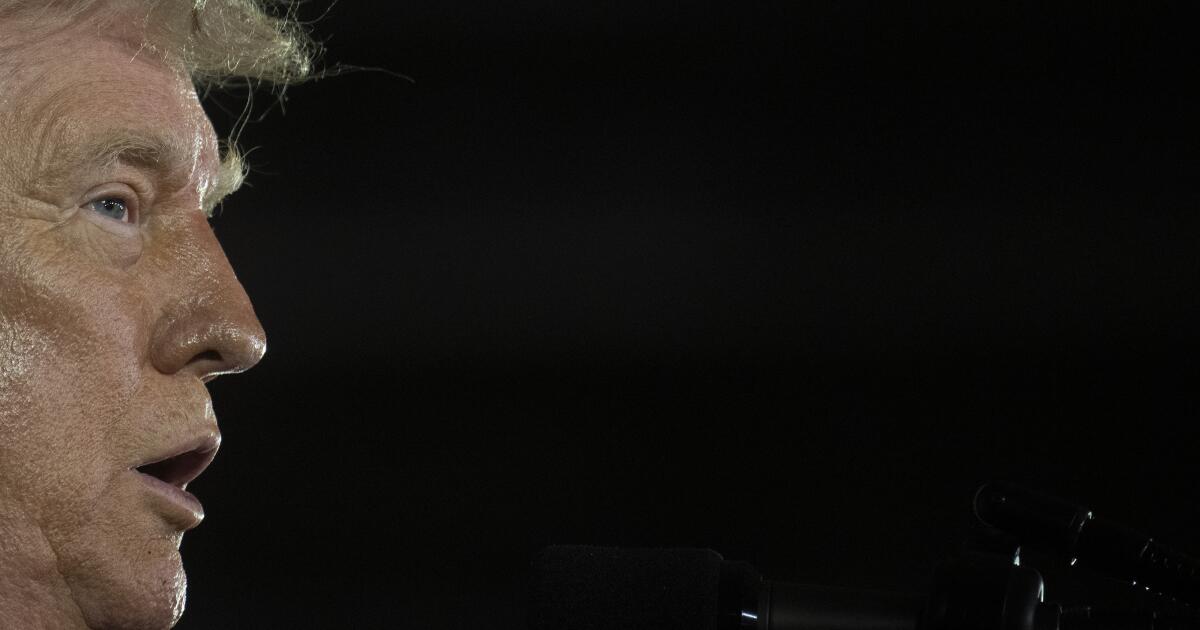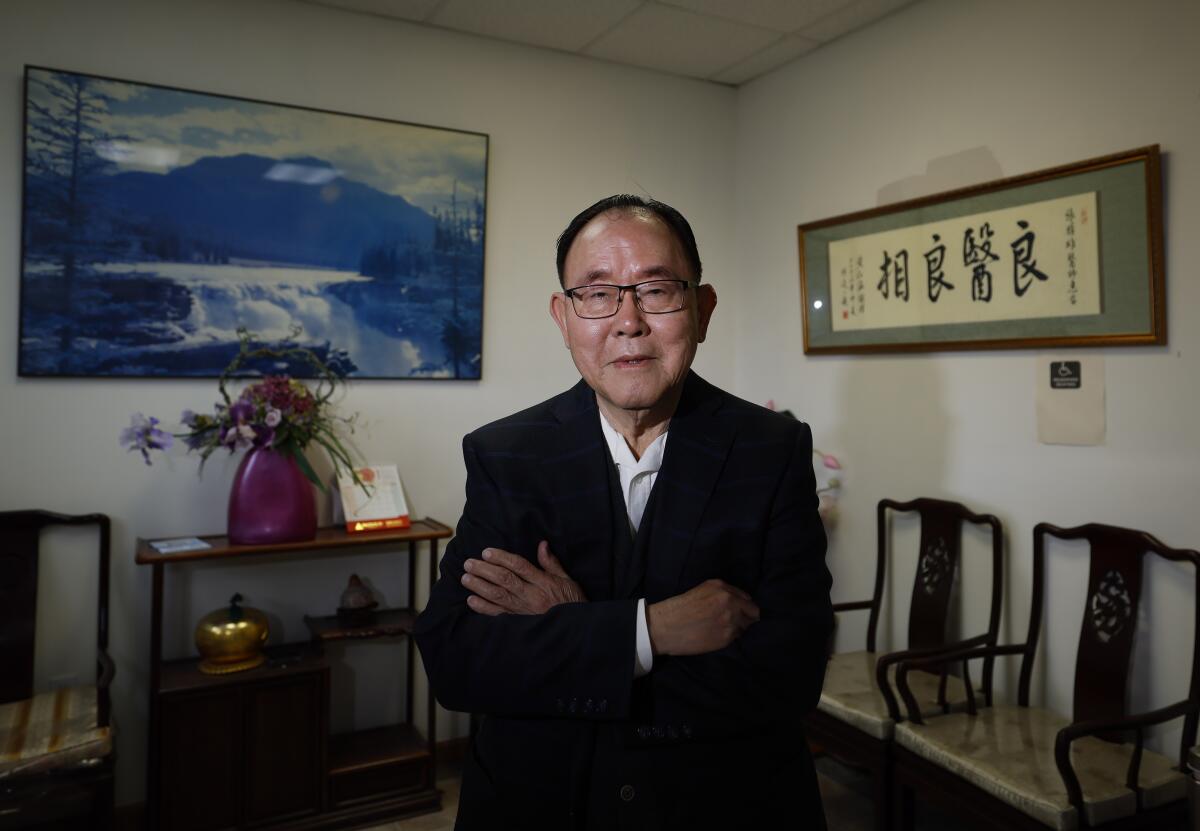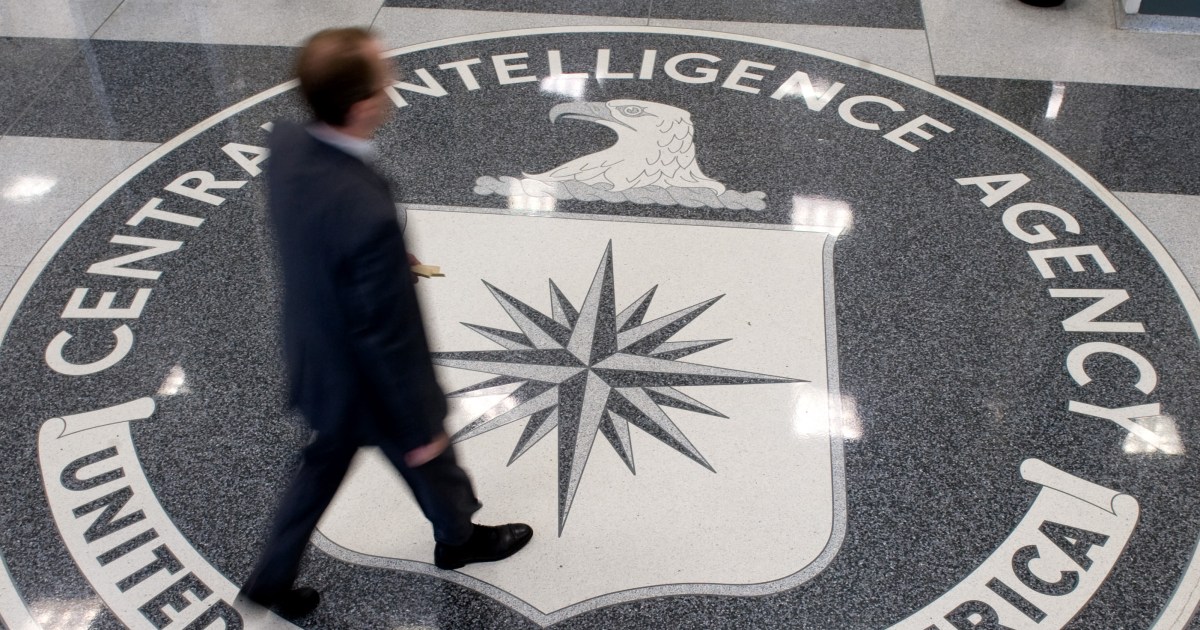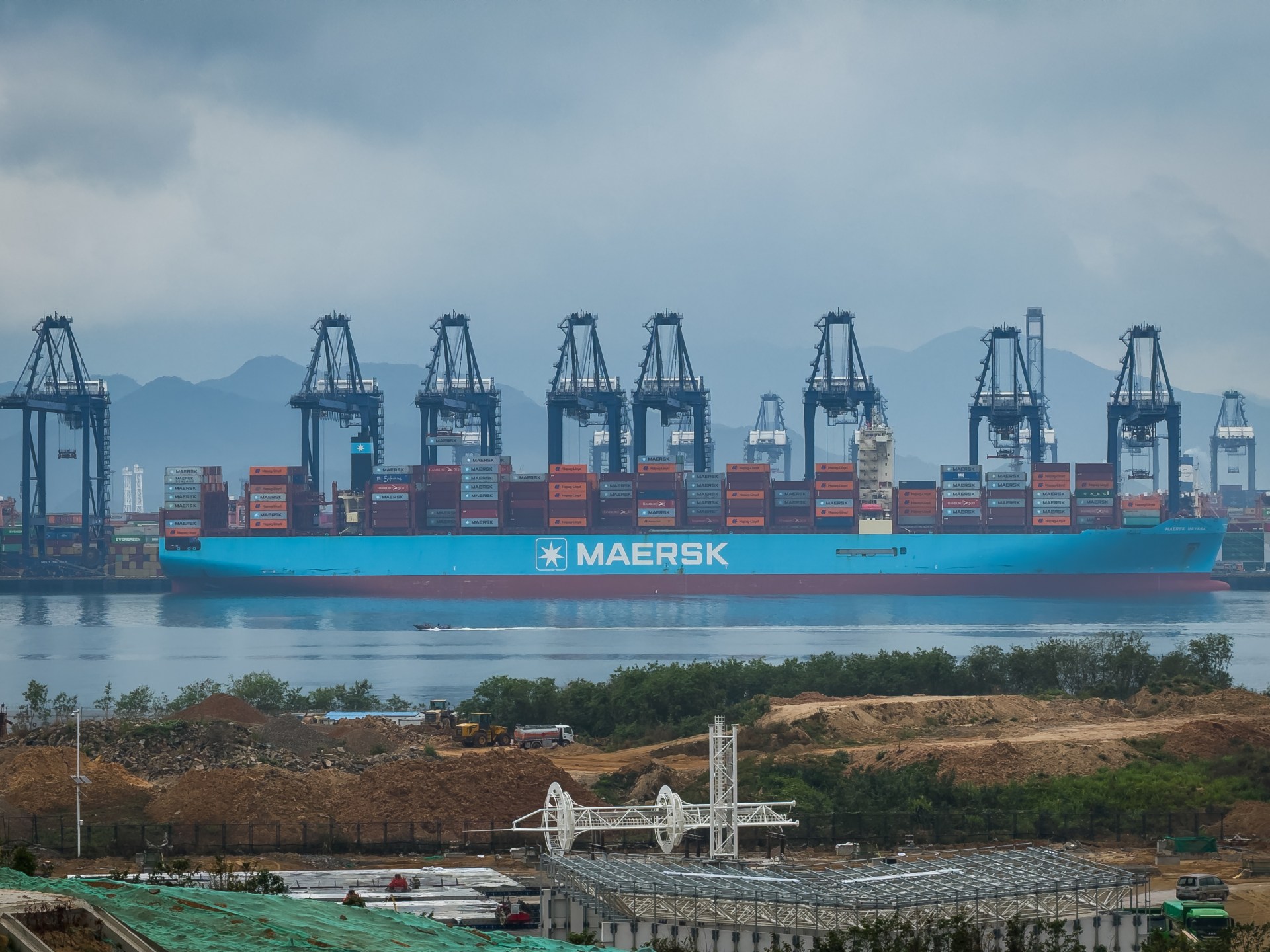Column: The ‘USA’ brand was 250 years in the making. It took just 100 days to trash it
Ken Griffin, one of Republicans’ billionaire donors who’d convinced themselves that President Trump wouldn’t do some things he campaigned to do, finally got it right last week. Griffin inadvertently identified the irony of Trump’s presidency so far: The man who made a brand of his own name (“TRUMP,” all caps) — and a fortune licensing it as a signifier of success on products from hotels to sneakers — has all but wrecked the United States’ brand in 100 days.
“We’re eroding that brand right now,” Griffin lamented at an economic forum. Everything that “USA” has long stood for — financial stability, military strength, cultural prestige and more — undermined. “It can take a very long time,” Griffin warned, “… to remove the tarnish.”
For the record:
5:15 p.m. May 1, 2025An earlier version of this column implied that Ken Griffin donated to the Trump campaign. He has donated to downballot Republican candidates and to the Trump inauguration.
A related sad irony: Trump has rivaled President Franklin Roosevelt, who popularized the “first 100 days” marker, for swift, decisive action out of the gate. But where FDR rescued a crashed economy and envisioned a social safety net that’s endured nearly a century, Trump took what economists considered a “stellar” economy and crashed it, while deputizing minions to tear holes in the safety net and take chainsaws to the federal government and the rule of law.
Lawsuits against the Trump administration proliferate at the rate of two a day, according to trackers, especially over billionaire Elon Musk’s assaults on federal workers and spending laws, and against Trump’s immigration crackdown. The president continues to defy a Supreme Court ruling to “facilitate” the return of a man wrongly deported to El Salvador’s gulag. As J. Harvie Wilkinson III, a federal judge named by President Reagan, wrote for the 4th District Court of Appeals on April 17, “The government is asserting a right to stash away residents of this country in foreign prisons without the semblance of due process.”
Internationally, Trump is wrecking the legacy of Roosevelt’s last days, the global structure of alliances that has been a force-multiplier for the United States against Russia, China and other adversaries. The dollar and U.S. Treasuries are diminished as safe harbors. The toxicity of the Trump-U.S. brand was dramatically evident in elections on Monday in Canada: Prime Minister Mark Carney’s Liberal Party came from way behind to win, as voters took out their disgust with Trump’s Canada-bashing on conservative candidates.
Characteristically, Trump conjures his own self-serving reality. At a MAGA rally in Macomb County, Mich., on Tuesday, he exulted, “This is the best … 100-day start of any president in history, and everyone is saying it.”
No, they’re not. A slew of recent polls show that Trump’s job-approval rating has slid to the lowest of any new president in eight decades, with nearly six out of 10 Americans disapproving of his performance in surveys by Pew Research Center and AP/NORC. On a range of issues, including the two that arguably got him elected, immigration and the economy, Trump now gets negative reviews, including in a Fox News poll.
“We’ve just gotten started,” he said in Michigan. “You haven’t even seen anything yet.”
On that he’s probably right: Worse is yet to come.
Americans seem to think so. On Day 100 came a report that consumer confidence plunged in April, a signal of a recession ahead. On Day 101, Wednesday, came news that the economy contracted 0.3% in the first quarter, after a 2.4% annual growth rate in the previous quarter — the last of the Biden presidency. Stocks tumbled, yet again.
That “golden age” that Trump announced in his inaugural address seems to begin and end with the new bling in the Oval Office.
His tariffs have taken such a toll on businesses and consumers that he softened auto-related levies in time for his Michigan visit. But that only exacerbated the chaos surrounding his “beautiful” tariffs, and the economic uncertainty he’s spawned. And it put the lie to his claims that Americans don’t pay tariffs, China does.
And because consumers pay, Trump had to clean up another 100th-day tariff mess, in aisle Amazon. On Tuesday he phoned CEO Jeff Bezos, another of his billionaire donors, to get the e-commerce giant to drop a plan to show tariff costs on customers’ bills. (They’ll still pay more, they just won’t see the proof.)
Yet 100 days is 99 more than candidate Trump said he’d need to Make America Great Again. He campaigned ad nauseum saying he’d solve this, that or another problem on Day 1. At least 53 times he promised to end Russia’s war on Ukraine before he took office. (He’d spoken “in jest,” Trump told Time magazine last week.)
What he did do before he took office? Admit it would be “very hard” to bring down prices as he’d pledged. (Forget bringing them down: He drove them up with tariffs.)
“There will be a little disturbance, but we’re okay with that,” Trump told a joint session of Congress in March. Oddly, he’s been hailing as his economic model the late 19th century period when “it was all tariffs” and America was “most successful.” In fact, that era saw repeated recessions, depressions and financial panics.
Who’s going to tell him he’s wrong? Trump, in the bubble of sycophancy he’s created in the Cabinet, Congress and among his base, proceeds with few checks. “I run the country and the world,” he boasted to the Atlantic last week.
He’s not wrong, given that he does lead what is still the world’s superpower and — impulsive, unpredictable and vengeful as he is — often forces others to bend his way. He hasn’t totally destroyed America’s brand. But he still has more than 1,300 days to go.



